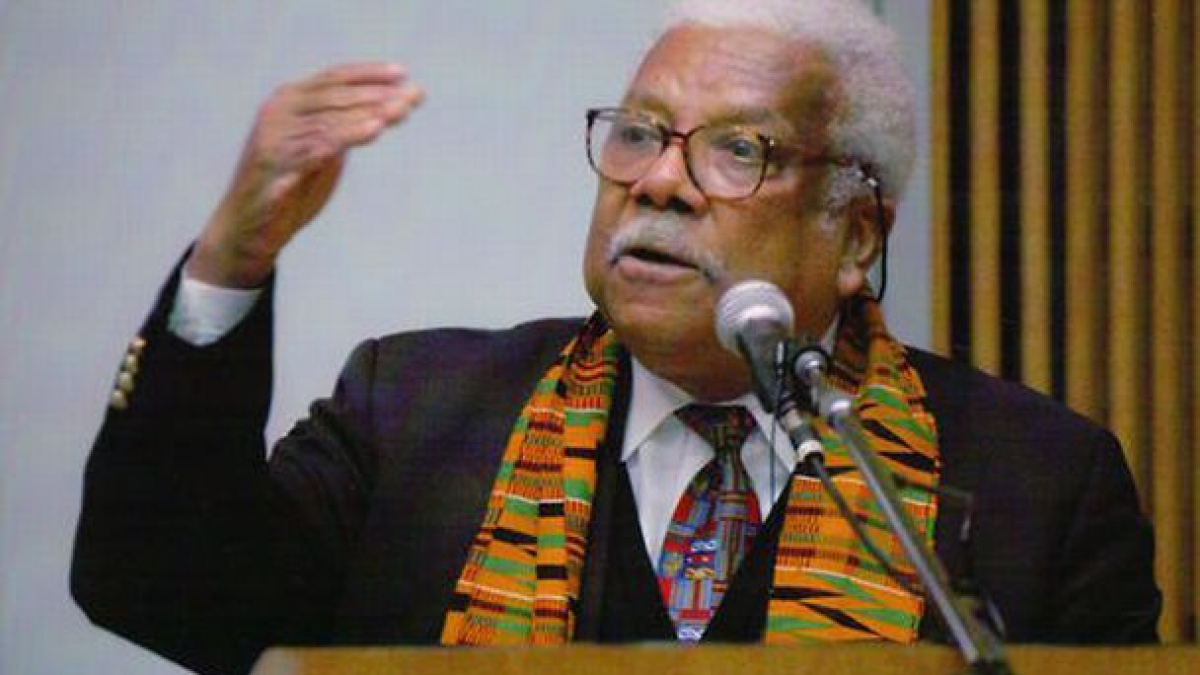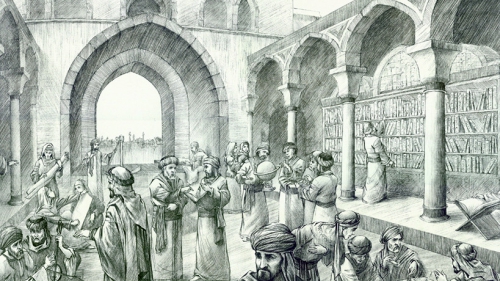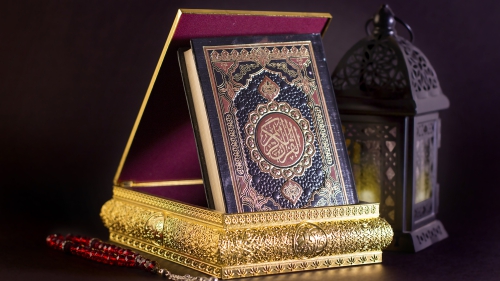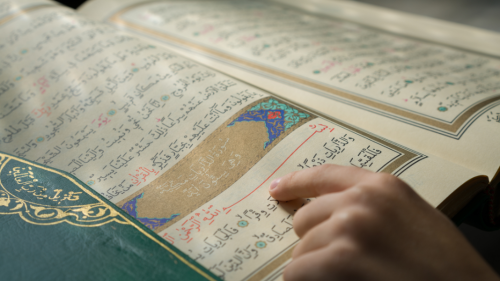Death of an intellectual giant - Ali Mazrui

 |
Professor Ali Al-Amin Mazrui died last week on 13 October 2014, at Binghamton, New York, in the United States after being ill for several months. He was 81. I first learned about this great scholar when I was preparing a talk on Africa in the early 1980s in California. My search on the topic took me to the university library where I found some two dozen books on Africa written by this renowned Kenyan academic. He was simply the best authority on Africa, consulted by heads of states and governments, international media and research institutions for political strategies and alternative thoughts.
It was no accident, therefore, that the professor would be contacted by both the BBC of the UK and PBS to write and present a ground-breaking 9-part television series in the 1980s entitled "The Africans - a Triple Heritage" that talked of the indigenous African, Islamic and Western, influences on the continent. I remember watching that series multiple times, taking notes and audio-taping it.
In 1979, Mr Mazrui also delivered the BBC's Reith Lecture, entitled The African Condition.
Ali Mazrui was born on February 24, 1933 in Mombasa, Kenya, nearly 30 years before the colonial British rule ended, into a prominent Muslim family. His father was the Chief Qadi of Kenya, the highest legal authority on Islamic law. He studied at some of the world's most prestigious universities, including Oxford, from where he obtained a doctorate in philosophy in 1966. He earned a B.A. from the University of Manchester in the UK, and an M.A. from Columbia University in New York. Upon completing his education at Oxford University, Mazrui joined Makerere University (Kampala, Uganda), where he served as head of the Department of Political Science and Dean of the Faculty of Social Sciences. He served at Makerere University until 1973, when he was forced into exile in the USA for his sharp criticism of the then Ugandan and Kenyan regimes - led by Idi Amin and Daniel Arap Moi, respectively.
In 1974, he joined the faculty of the University of Michigan as professor and later was appointed the Director of the Center for Afro-American and African Studies (1978-1981). In 1989, he was appointed to the faculty of Binghamton University, State University of New York as the Albert Schweitzer Professor in the Humanities and the Director of the Institute of Global Cultural Studies (IGCS) - positions he held until his death.
In addition to his appointments as the Albert Schweitzer Professor in the Humanities, Professor in Political Science, African Studies, Philosophy, Interpretation and Culture and the Director of the Institute of Global Cultural Studies (IGCS), Professor Mazrui also held three concurrent faculty appointments as Albert Luthuli Professor-at-Large in the Humanities and Development Studies at the University of Jos in Nigeria, Andrew D. White Professor-at-Large Emeritus and Senior Scholar in Africana Studies at Cornell University, Ithaca, New York and Chancellor of the Jomo Kenyatta University of Agriculture and Technology, Nairobi, Kenya.
Professor Mazrui was also a Visiting Scholar at Stanford University, The University of Chicago, Colgate University, McGill University, National University of Singapore, Oxford University, Harvard University, Bridgewater State College, Ohio State University, and at other institutions in Cairo, Australia, Leeds, Nairobi, Tehran, Denver, London, Baghdad, and Sussex, amongst others.
In 2005, Professor Ali Mazrui was selected as the 73rd topmost intellectual person in the world on the list of Top 100 Public Intellectuals by Prospect Magazine (UK) and Foreign Policy (United States).
In addition to his academic appointments, Professor Mazrui also served as President of the African Studies Association (USA) and as Vice-President of the International Political Science Association. He served as Special Advisor to the World Bank, and also served on the Board of the American Muslim Council, Washington, D.C.
Professor Mazrui's research interests included African politics, international political culture, political Islam and North-South relations. He was a brilliant writer and wrote extensively of colonialism and the harm it had caused to Africa. He championed freedom for his people.
He was author or co-author of more than forty books, numerous book chapters, and hundreds of scholarly articles in major scholastic journals, magazine and newspaper commentaries. His books include the classics "Towards a Pax Africana" (1967) and "The Political Sociology of the English Language" (1975), along with a utopian novel set in heaven entitled, "The Trial of Christopher Okigbo" (1971). His research interests, which ranged from African politics to international political culture, as well as North-South relations, are reflected in his works "Africa's International Relations" (1977), "Political Values and the Educated Class in Africa" (1978) and "The Political Culture of Language: Swahili, Society, and the State", co-authored with Alamin M. Mazrui. Two additional influential books were "A World Federation of Cultures: An African Perspective" (1976) and "Cultural Forces in World Politics" (1990). He also served on the editorial boards of more than twenty international scholarly journals.
He first rose to prominence as a critic of some of the accepted orthodoxies of African intellectuals in the 1960s and 1970s who by and large were all Marxists. He was critical of African socialism and all strains of Marxism. He argued that communism was a western import, which was just as unsuited for Africa as the earlier colonial attempts to install European style governments. He argued that a revised liberalism could help the African continent and described himself as a proponent of a unique ideology of African liberalism.
In his series of essays On Heroes and Uhuru-Worship, he wrote as an African scholar deeply involved in the fight for the freedom of his people, expressing empathy with those on the front line of the battle against colonialists. "What about blaming the freedom fighter for the atrocities committed by the security forces contending him?" he asked.
Professor Mazrui was also a stern critic of the current world order, led by the USA. He believed that the current capitalist system was deeply exploitative of Africa and developing nations, and that the West rarely if ever lived up to their liberal ideals that they promoted. He wrote very early about the racism and discrimination that existed in the capitalist world and was one of the first to write on Global Apartheid.
Prof. Mazrui became most outspoken against all forms of oppression. Because of his unflinching advocacy for the anti-apartheid movement, and his active role within the African Studies Association (ASA) in the USA, many of his liberal colleagues who once admired him for his anti-Marxist stance started distancing from him. He was no longer held up and he was no longer gracing the pages of the mainstream political science journals. Oddly, in the academic world, his status as a political scientist was being questioned by the mainstream departments of political science. This questioning of his scholarship intensified after Prof. Mazrui became a clear advocate of reparations for the Trans-Atlantic Slave trade.
He opposed Western interventions in the developing nations, such as the Iraq War. He was not afraid to speak out about the degrading conditions of the occupation of Palestine and wrote and spoke out against the conditions of the Palestinian Peoples. In his book Cultural Forces in World Politics, Mazrui was one of the first intellectuals who compared the logic of Zionism with the logic of South Africa's apartheid.
It was no surprise that prior to taking up the appointment at Binghamton there were demonstrations by those supporters of the rogue state of Israel who believed that Mazrui was unworthy of being chosen as a distinguished Professor.
Professor Mazrui lamented the growing influence of the West on societies across the world. "Even the very vices of Western culture are acquiring worldwide prestige. Muslim societies which once refrained from alcohol are now manifesting increasing alcoholism," he said in a speech in 2000 at an event hosted by the Royal African Society and the BBC in London.
"Chinese elites are capitulating to Kentucky Fried Chicken and MacDonald hamburgers. And Mahatma Gandhi's country has decided to go nuclear."
In one of his books, Islam between Globalization and Counter Terrorism, he explained how the religion was entrapped in the danger of rising extremism.
Professor Mazrui like most Muslims felt the deep persecution and harassment of the USA after the Islamophobia craze was fuelled by the neo-cons in the post-9/11 era. He was stopped and held at the airport in Miami and questioned about his connections to international terrorism. The Kenyan-born academic, long tenured in the United States, was treated politely but nevertheless as an undefined felon who had to be watched constantly and escorted to the lavatory. He was asked about the meaning of Jihad and what madhab or denomination he belonged to. "When I said Sunni, they said why not Shia?"
After four hours the mistake was discovered and he was apologetically released. He was booked for an onward flight to replace the one he missed, put up at a hotel and given five dollars in case he got hungry waiting for the next plane out.
Throughout his career, Prof. Mazrui expressed strong opinions on a plethora of issues. As a true intellectual, he never shied away from saying what he believed to be the truth.
In one of his speeches he said, "In the last three years, at least a million Muslims have been killed in Afghanistan, Iraq, Kashmir, Palestine, (and) Chechnya." He said a million more could be added since the 1992 Gulf War from the killing fields of the Balkans, the West Bank and Gaza, and the United Nations sanctions on Iraq. "Counting the number of dead in the world as a whole since 1990, Muslims are a people more sinned against than sinning."
Prof. Mazrui was an outspoken critic of extremism and fundamentalism of all sorts and he was critical of both the US imperial war on terror and those extremists such as Boko Haram and other misguided folks.
He was a friend of world-famous figures like Nelson Mandela, Malcolm X and Muhammd Ali. His death will be mourned by millions of people in our world who looked up to him for guidance.
In his tribute to Prof. Mazrui, Horace Campbell, Professor of African American Studies and Political Science, Syracuse University, remembered him as a great humanist who had dedicated his soul to the cause of Africa. He wrote, "Ali Mazrui stood on the crucial issues of the fight for social justice and the anti-imperialist struggles. For this, those who justified the oppression of the Palestinian peoples vilified him and sought to diminish him, but Mazrui was not afraid of these forces that stood against academic freedom in the United States. I want to salute the courage and humanism of Ali Mazrui. By humanism, I mean the philosophical and ethical stance that he took which emphasized the value and agency of human beings, individually and collectively. Importantly, this humanism of Mazrui was based on the dignity of all human beings regardless of race, religion, region, sexuality or gender. The humanism of Mazrui was linked to the quest for reparative justice, peace, self-determination, the rights of women, secularism and prosperity for all."
Turkish Prime Minister Ahmet Davutoglu has offered his condolences on Monday to the family of Mazrui by saying: "His efforts towards overcoming current problems, especially on the African continent, will always be remembered with appreciation."
The head of the Turkish government described Mazrui as a "personality who prospered in our intellectual world with his ideas and works, and who had a high sensitivity towards resolving the problems encountered by humanity today.
Kenya's President Uhuru Kenyatta described him as "towering" academic whose "intellectual contributions played a major role in shaping African scholarship".
"Indeed, death has robbed us of one of Kenya's greatest scholars," Mr Kenyatta said.
Tanzania's Deputy Minister of Communication, Science and Technology, January Makamba, paid a more personal tribute, saying Mr Mazrui "taught me to appreciate and value Africa's complex identity and multiple heritages".
At the prayers for Mazrui on Monday at Binghamton, N.Y., one of the Imams leading the prayers described him as someone whose support for diversity was also his support for unity. It is this ability to work across all peoples that will distinguish Professor Ali Mazrui for generations to come.
As noted by others who knew him closely, they loved him for his character and personal qualities. His warmth was enveloping and his laughter was infectious. He was endlessly generous toward family, close and extended, and to people in less fortunate circumstances. He was gracious to all, including strangers and intellectual adversaries. He enjoyed learning from people from all walks of life and cultures. An egalitarian and humanitarian, he endeavored to treat all people with respect, dignity and fairness. At the same time, he valued spirited debate about political, economic and philosophical ideas. Dr. Mazrui modeled integrity and decency.
Like many of his admirers in this world, I shall miss him greatly. May Allah enter him in Paradise!
*****
Dr Habib Siddiqui has authored nine books. His book: "Democracy, Politics and Terrorism - America's Quest for Security in the Age of Insecurity" is available at Amazon.com.
Related Suggestions
Resurrection shall you will be paid your full reward.Whoever is
removed away from the Fire and admitted to Paradise he is indeed
successful.The life of this world is only(but temporary) the
enjoyment of deception.So we have to prepare to meet our Creator
any time.When the time comes we have to go whether we like it or
not.This is why the Prophet said a wise person is he who
controls his desires and makes preparation for the Hereafter. So
the life which is very short. How long you tarried a person will
say a day or part of day.May Allah have Mercy on Ali Mazrui and
forgive all his shortcomings and admit him in Jannah.Amen

















